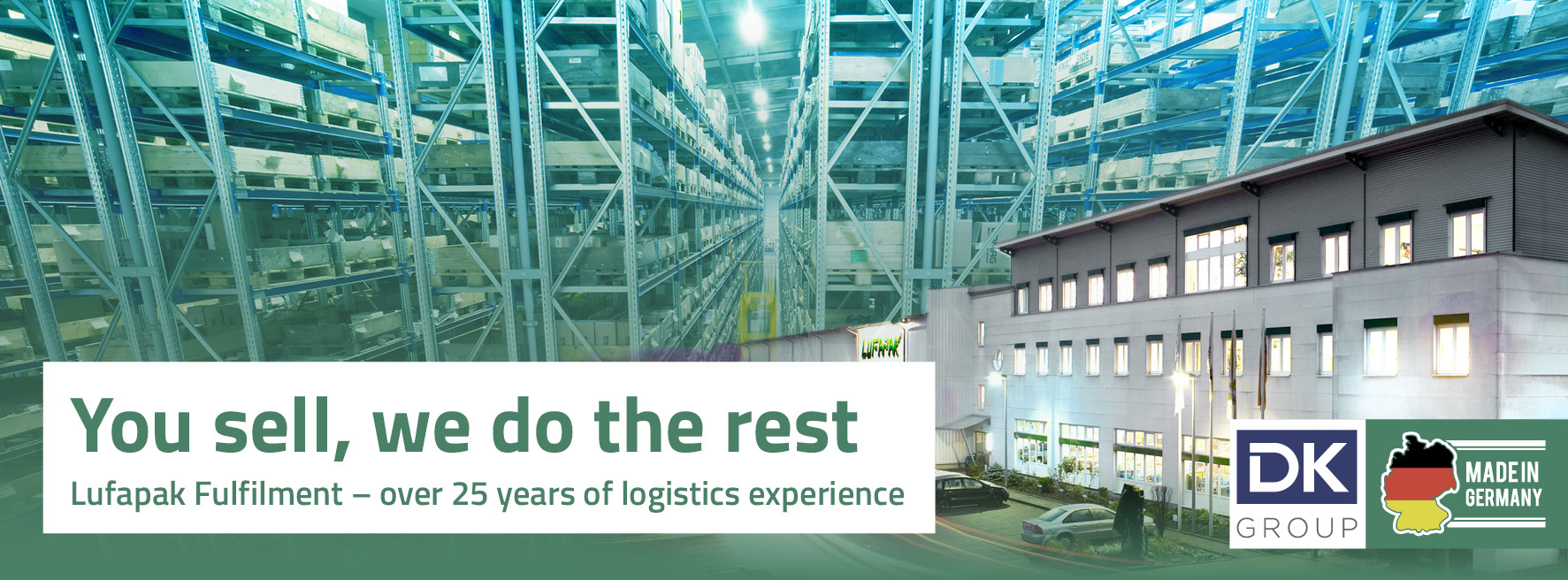sales@lufapak.de +49 2631/384-0 Contactform
In-house fulfillment – definition and explanation
In-house fulfillment, also known as self-fulfillment, is a process in which a company retains control over its entire logistics chain. This includes the warehousing of products, order fulfillment, packaging of orders and shipping to customers.
Companies that perform in-house fulfillment usually have their own warehouses or storage facilities where they store their products. They employ people who are responsible for performing all fulfillment tasks, including receiving and storing goods, picking and packing orders, and organizing shipping.
A key aspect of in-house fulfillment is the direct control a company has over its entire logistics process. This allows them to control quality, save costs, and provide efficient customer service. However, this method also requires significant investment in warehouse space, equipment and personnel. In addition, scaling the business can be challenging, as it often means requiring more space and additional staff.
In-house fulfillment can be particularly suitable for companies that have special requirements for storing or shipping their products, as well as for smaller companies that do not yet have the volume of orders to justify using an external service provider.
Advantages and disadvantages of in-house fulfillment
In-house fulfillment offers a number of advantages and disadvantages for companies that want to perform their own logistics tasks.

Advantages of In-house Fulfillment
- Control: Companies have full control over their inventory, packaging processes and shipping methods with in-house fulfillment. They can directly influence quality, timing and efficiency.
- Cost savings: For low order volumes, in-house fulfillment can be less costly than outsourcing because there are no additional fees for fulfillment services.
- Flexibility: Companies can quickly adapt their processes to changing business needs without relying on the approval or cooperation of a third party.
- Branding: The ability to control the entire process allows companies to ensure a consistent brand experience, from product packaging to delivery.
Disadvantages of In-house Fulfillment
- Scalability issues: As the business grows, it can be difficult to increase storage capacity and manpower accordingly.
- Higher initial investment: Setting up your own warehouse and hiring employees requires a significant financial investment.
- Time commitment: maintaining inventory, packaging and shipping can be time-consuming and divert resources from other important business tasks.
- Complexity: Managing all aspects of fulfillment, including logistics and customer service, can be complex and challenging, especially as the business expands into multiple markets.
When it pays to use in-house fulfillment for your own company
Deciding whether in-house fulfillment makes sense for a company depends on a number of factors. Here are some situations where it might be worthwhile:
- Cost savings: In-house fulfillment can be more cost-effective than outsourcing, especially if the order volume is still relatively low. This is because there are no additional fees for using the services of a third-party provider. However, warehousing, staffing and shipping costs must be considered.
- Control over processes: Companies that place a high value on control could benefit from in-house fulfillment. They have full control over their inventory, packaging processes and shipping methods, and can directly influence quality, timing and efficiency.
- Customization options: The ability to control the entire process allows companies to ensure a consistent brand experience, from product packaging to delivery. In addition, product or packaging customization is often easier and less expensive when processes are handled in-house.
- Scale: as the business grows and order volumes increase, in-house fulfillment can be challenging. However, continuous improvement of processes can lead to significant benefits and enable it to keep pace with growth.
Our conclusion on the subject of in-house fulfillment
In-house fulfillment can be a valuable strategy for companies that want full control over their logistics processes, offer specially customized products or packaging, or want to save costs on low order volumes. It allows a high degree of flexibility and can help ensure a consistent brand experience.
However, in-house fulfillment also requires significant resources in terms of space, equipment and personnel. It can be difficult to scale quickly as order volumes increase, and it can detract from the company’s core competencies.
Ultimately, whether in-house fulfillment is the right choice depends on each company’s specific circumstances and goals.
Contact us now and get advice


